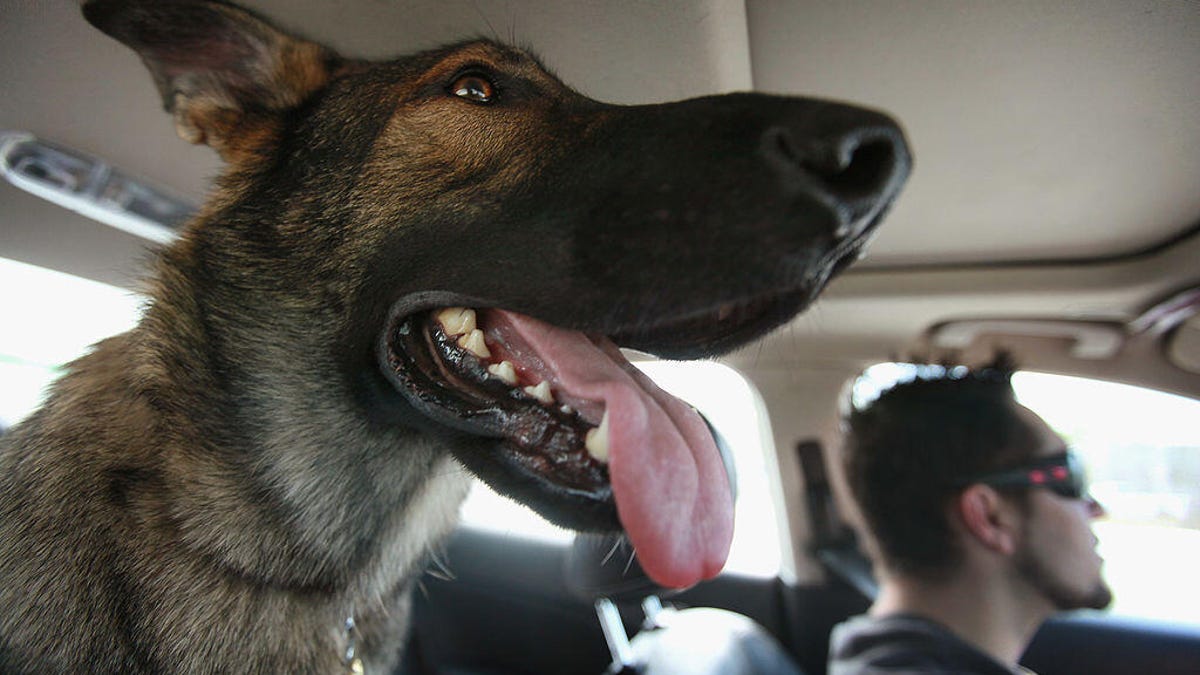The US Army wants to train dogs to detect COVID-19 through scent
The Army is joining a University of Pennsylvania study into whether dogs can identify COVID-19 in asymptomatic carriers.

This dog, named Panzer, assists a veteran who has post-traumatic stress disorder. Now the US Army is helping out with a project to see if pups can detect the coronavirus through smell.
The US Army is joining a research initiative at the University of Pennsylvania's School of Veterinary Medicine that seeks to explore whether scent detection dogs are capable of sniffing out COVID-19.
The study, first proposed in March before launching in May, presents test dogs with COVID-19-positive saliva and urine samples in a lab setting. From there, the researchers study whether the canines can differentiate between positive and negative samples in the laboratory. That'll then create the basis for testing whether they can identify people infected with COVID-19. It's the same process researchers have previously used to train dogs to identify diseases like diabetes and ovarian cancer.
"The potential impact of these dogs and their capacity to detect COVID-19 could be substantial," Cynthia Otto, director of Penn Vet's Working Dog Center, said in a release. "This study will harness the dog's extraordinary ability to support the nation's COVID-19 surveillance systems, with the goal of reducing community spread."
Now, through a cooperative research and development agreement, the US Army's Combat Capabilities Development Command (CCDC) Chemical Biological Center is pitching in, and providing field-tested Training Aid Delivery Devices to help the dogs safely study the scents.
Dogs can play a key role in disease detection, given that they have up to 300 million smell receptors (humans, in comparison, have 6 million). Scent detection dogs can pick up on low concentrations of volatile organic compounds, or VOCs, linked to diseases including ovarian cancer, bacterial infections and nasal tumors. Those VOCs are found in human blood, saliva, urine or breath. Dogs could be especially helpful in detecting COVID-19 among asymptomatic patients, or in hospital or business environments where testing is difficult.
Transmission of COVID-19 from humans to animals is seemingly low, as only a handful of cases have been reported since the outbreak. On Thursday, reports circulated about the death of a COVID-19-positive German Shepherd in New York, believed to be among the first dogs to have caught the virus.



